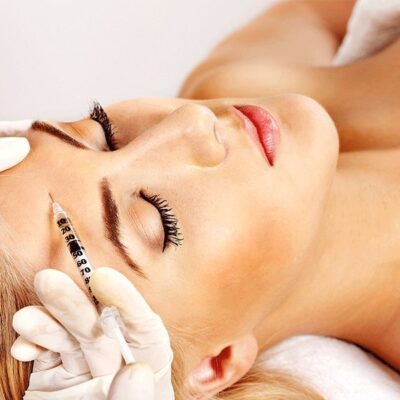Unaddressed bruxism leads to a lot of other problems like wearing down/chipping of teeth; aching/stiff jaw, face, and temples; temporomandibular joint disorder; disturbed sleep, and chronic intense headaches. Thankfully, an orthodontic tool- the braces- can help treat bruxism and alleviate its symptoms. For treatment and correction of this condition, many patients also inquire about bruxism treatment and Dental Braces Cost in Gurgaon. Keep reading to know about braces and how braces help with bruxism.
What is Bruxism?
Bruxism, familiar as teeth grinding or clenching, is a common condition resulting from a bite problem or a missed/crooked teeth that puts extra strain on the jaw muscle. Often, it is experienced during sleep but may even occur otherwise. An occasional clenching or grinding of teeth due to stress, anxiety, dehydration, excess alcohol/caffeine intake, or sleep disorder is not a major cause of concern, but if it’s frequent or regular due to teeth/jaw misalignment, it’s bruxism, which shouldn’t be ignored.
What are Braces?
Braces are orthodontic appliances designed to bring the teeth and jaw into proper alignment. These are recommended for correcting teeth gaps, crooked teeth, crowded teeth, and underbite/overbite/crossbite/ open bite- in short, misalignments or malocclusions. They can enhance smile aesthetics, improve oral health, restore one’s confidence, and improve one’s speech and chewing/biting.
Braces can be of various types, based on the material they are made of: Metallic/Self-ligating and Ceramic (tooth-colored), and where they are placed- Sublingual braces. These types of braces are fixed inside the mouth. The only braces that are removable and latest are the clear aligners- Invisalign, being the popular brand. All types of braces work by gradually moving the teeth into ideal positions by placing constant, gentle pressure/force on the teeth. Patients of all ages can get braces treatment.
How Can Braces Help Break the Teeth Grinding Habit?
- Correct Bite Issues
Braces can help get rid of bruxism symptoms by targeting the root cause of the condition- the mild to moderate bad bites. By making the upper and lower teeth fit together, the jaw will no longer be strained from the teeth to clench.
- Evenly Distribute Pressure Across the Whole Smile
By fixing the teeth’s misalignment, there will no longer be excessive localised pressure. A healthy functioning bite aids in the even distribution of pressure and lowers the severity and frequency of grinding of teeth.
- Prevent the Damage Caused by Teeth Grinding with Retainers or Night Guards. To avoid harm caused to the enamel and other parts of the mouth by teeth grinding at night, a custom-fit night guard is recommended to wear. An orthodontic retainer, which is provided just after braces treatment, can also be used for immediate relief from bruxism. It acts as a protective barrier between the upper and lower teeth and can help protect the teeth and braces as well as muscles, from unwanted damage caused by teeth grinding.
What Else to Know About Bruxism and Braces?
At the first visit to an orthodontist for braces, dental X-rays, diagnostic photos, and a digital smile impression are taken of the patient with bruxism. The teeth and bite are thoroughly examined, and then a tailored treatment plan will be created after discussing the suitable treatment options.
Generally, bruxism can be alleviated with the help of traditional metal braces, clear ceramic braces, or Invisalign (truly invisible braces). Those who are wearing braces or aligners may not be relieved from bruxism soon enough. In the initial phase of the treatment, probably the first few weeks after the start of braces treatment, it’s normal to expect frequent grinding of teeth. That’s because the patients’ teeth and jaw take some time to adapt to braces.
As the teeth begin to move gradually with the force laid by the braces system until the jawbones adapt to this force, the patient will not be relieved from their teeth grinding or clenching.
An added benefit of using braces for bruxism is improved oral health and general wellness. By straightening a smile or fixing a bite issue, braces can allow the teeth and jaw to function effectively. The speech, the dental hygiene, the biting/chewing, and the digestive function all get better when there is no misalignment or malocclusion. Furthermore, the reduced strain on the jaw muscles helps relieve bruxism-associated symptoms like jaw pain/discomfort, temporomandibular joint disorder, and headaches.
Get Bruxism Consultation at AK Global Dent
Still confused whether braces can help you with bruxism or if you would require other treatment? Don’t hesitate to reach out to AK Global Dent dental experts and clear your doubts. We have a team of world-class orthodontists to help in deciding on the suitable option to achieve a flawless, well-protected smile for years to come. To learn more about braces treatment cost and to opt for braces treatment to stop the teeth clenching and improve your life quality, schedule a consultation with Best Dentist in Gurgaon at AK Global Dent today.




